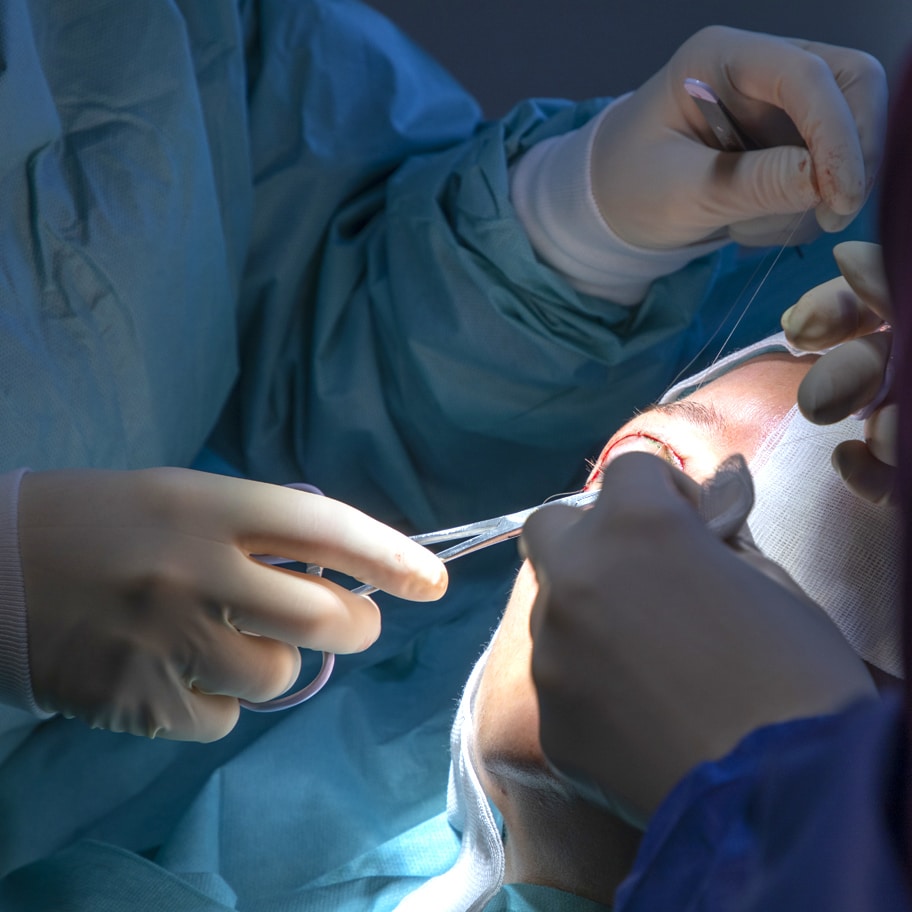A Complicated Surgery
This surgery can also be used to restore the functionality of the eyelid. Blepharoplasty can be carried out on both the upper and lower eyelids. As this surgery can be quite complicated it is important that it is only carried out by a fully qualified professional who is aware of the risks and complications associated with the surgery. In some cases, injuries may be sustained due to an error during surgery or failing to provide adequate aftercare. These types of errors may be classed as medical negligence and as a result, are treated differently to other personal injury claims.
The most important part of any surgery is choosing the right medical practitioner to carry out the job. It is important that they are fully trained and have adequate experience in this field due to the delicate and invasive nature of this procedure. An untrained practitioner is more likely to make an error during surgery which could result in an injury. If it is found that they acted in a negligent manner and failed to show a reasonable level of duty of care, they may be found liable. Medical practitioners are responsible for ensuring the health and safety of all patients during their treatment. This also includes the aftercare and recovery period.
Negligent Behaviour
Types of negligent behaviour include:
- Failing to carry out an assessment prior to surgery
- Errors during surgery
- Failing to provide the correct results
- Substandard care during and after the surgery
- Anaesthesia errors
- Misdiagnosis of injury
Common Injuries
Common types of injuries sustained in eyelid surgery claims include:
- Swelling and bruising
- Infection
- Damage to the cornea
- Double vision
- Optic nerve damage
- Haemorrhage leading to bleeding in the eye socket
- Droopy eyelid
- Difficulty in closing the eyes
- Scarring
- Blindness or partial loss of vision
- Dryness and itchiness of eyes
Causes
Failing to Carry Out an Assessment Prior to Surgery
Failing to assess the patient prior to carrying out surgery could lead to injuries. This is an important step in the process as you can determine if they are a suitable candidate for this surgery. This also makes the practitioner aware of any medical conditions or allergies the patient may have which could cause an issue if certain equipment is used.
Failing to Advise the Patient
One of the most important parts of any treatment or surgery is ensuring that the patient is made aware of any potential risks or complications associated with eyelid surgery. This allows them to make their own decision on whether they would like to proceed with surgery. Failing to advise patients is a type of negligence which could lead to a claim being made against the medical practitioner.
Anaesthesia Errors
In most cases, a patient is treated with anaesthesia prior to undergoing surgery. This helps to numb the area so that the patient does not feel any pain or discomfort. However, an incorrect dosage leads to the patient being aware of their surroundings but with no mobility, can cause brain damage and nerve damage. This can also mean that the patient may still feel pain during their surgery as a result. This is a common type of medical negligence which is the fault of the medical practitioner. This can cause errors during the surgery and can also create further issues and injuries.
Inexperienced Medical Practitioner
Junior members of the medical team are more likely to know less knowledge and have little experience in dealing with this surgery and the complications it can present. If left unsupervised the risk of a surgery error or injury can increase. Inexperience is a leading cause of many medical negligence errors. Due to the complicated nature of this procedure, it is advised that it is carried out by an experienced practitioner who has extensive knowledge in this field.

